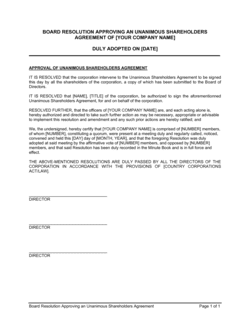Finding Peace In The Pandemic: A Seattle Woman And Her Green Space

Table of Contents
The Pandemic's Impact on Mental Health in Seattle
The COVID-19 pandemic significantly impacted the mental health of Seattle residents. Increased rates of anxiety, depression, and stress overwhelmed healthcare systems, leading to a mental health crisis within the city. The challenges faced by city dwellers were particularly acute. Confinement, social isolation, and disruption to usual support networks contributed to a surge in mental health issues. "Seattle mental health" services struggled to keep pace with the growing demand.
- Increased telehealth appointments: The shift to virtual mental health services highlighted existing inequalities in access to care.
- Rise in substance abuse: Many turned to substances as a coping mechanism, exacerbating existing problems.
- Strain on healthcare resources: Overwhelmed hospitals and clinics struggled to provide adequate care for the growing number of individuals experiencing mental health distress. This underscores the urgency of preventative measures and accessible support systems.
Discovering the Therapeutic Power of Green Space
Sarah, a Seattle resident, found her refuge in a small community garden just blocks from her apartment. Initially feeling overwhelmed by the pandemic's restrictions and anxieties, she discovered the calming effect of tending to her small plot of land. This became her personal sanctuary, a place where she could escape the constant news cycle and connect with something larger than herself.
The connection between nature and mental well-being is well-documented. Scientific studies show that spending time in green spaces reduces levels of cortisol, the stress hormone, and increases levels of serotonin, a neurotransmitter associated with improved mood. "Nature therapy" and "ecotherapy" are increasingly recognized approaches to improving mental health.
- Gardening activities: Sarah spent hours weeding, planting, and harvesting, finding a meditative quality in the repetitive tasks.
- Improved well-being: The simple act of nurturing plants provided her with a sense of purpose and accomplishment, counteracting feelings of helplessness and anxiety.
- Positive changes: Sarah reported reduced anxiety, improved sleep, and a greater sense of calm and resilience.
The Role of Gardening as a Stress Reliever
Gardening offers a unique blend of physical and mental benefits. The sensory experience—the earthy smells, the vibrant colors, the soft textures of leaves and soil—engages the senses and fosters a sense of tranquility. The act of nurturing plants promotes mindfulness, requiring focused attention on the present moment. "Mindfulness gardening" is a growing trend, emphasizing the meditative aspects of gardening.
- Physical benefits: Gardening provides gentle exercise, fresh air, and exposure to sunlight, all contributing to physical health and well-being.
- Mental benefits: The focus and concentration required for gardening provide a welcome distraction from stressful thoughts, leading to relaxation and improved mood. The sense of accomplishment derived from nurturing plants boosts self-esteem and fosters a sense of purpose.
- Social benefits: Community gardens provide opportunities for social interaction and shared experiences, combating feelings of isolation and loneliness.
Accessibility of Green Spaces in Seattle and Beyond
Equitable access to green spaces is crucial for ensuring mental well-being for all residents, regardless of socioeconomic status or geographic location. In Seattle, initiatives like the creation of new parks and community gardens are striving to make nature accessible to all. However, challenges remain in ensuring equitable access.
- Successful community garden projects: Many community gardens in Seattle offer vital green spaces within underserved neighborhoods, providing opportunities for gardening, social interaction, and a sense of community.
- Challenges in access: Geographical barriers, economic factors (e.g., lack of transportation, membership fees), and lack of awareness about existing green spaces contribute to unequal access.
- Call for investment: Increased investment in public green spaces, coupled with initiatives to improve access for underserved communities, is essential to ensure that the benefits of "nature's healing power" are enjoyed by all.
Finding Peace Through Nature's Embrace
Sarah's story highlights the powerful role that green spaces can play in fostering "pandemic peace" and improving mental well-being. Her experience demonstrates the therapeutic potential of connecting with nature, even in the midst of challenging circumstances. Access to nature is not a luxury; it's a fundamental component of "pandemic wellness" and overall well-being. The restorative power of "Seattle green spaces" is undeniable, and its benefits extend far beyond the city limits.
To improve your own mental wellbeing, take a proactive step towards connecting with nature. Find your peace by visiting a local park, starting a small balcony garden, or joining a community gardening initiative. Embrace "nature's healing power" and discover the transformative effects of spending time in green spaces within your community. Let’s ensure that everyone has access to these vital resources for improved mental and emotional health.

Featured Posts
-
 Philips Annual General Meeting Of Shareholders Key Highlights
May 24, 2025
Philips Annual General Meeting Of Shareholders Key Highlights
May 24, 2025 -
 Konchita Vurst Pro Yevrobachennya 2025 Prognoz Chotirokh Peremozhtsiv
May 24, 2025
Konchita Vurst Pro Yevrobachennya 2025 Prognoz Chotirokh Peremozhtsiv
May 24, 2025 -
 When To Fly For The Best Memorial Day Deals In 2025
May 24, 2025
When To Fly For The Best Memorial Day Deals In 2025
May 24, 2025 -
 Shareholders Unanimously Approve All Resolutions At Imcd N V Agm
May 24, 2025
Shareholders Unanimously Approve All Resolutions At Imcd N V Agm
May 24, 2025 -
 Neal Mc Donough Rides The Bulls In New Film The Last Rodeo
May 24, 2025
Neal Mc Donough Rides The Bulls In New Film The Last Rodeo
May 24, 2025
